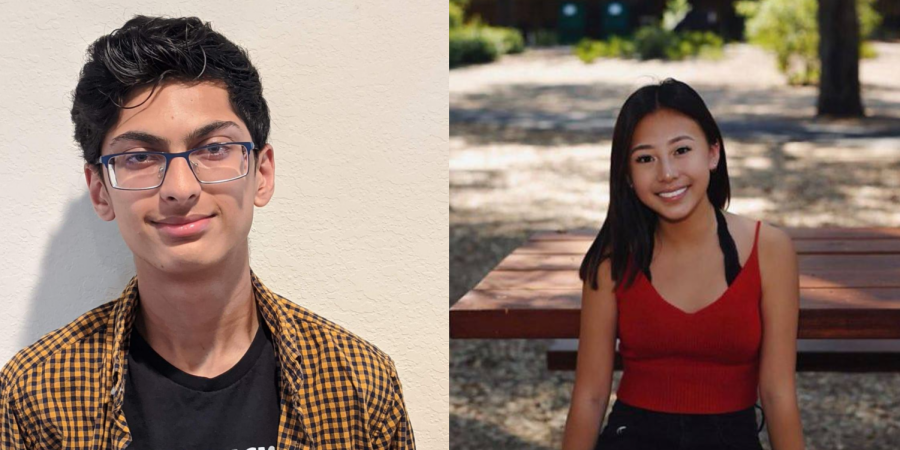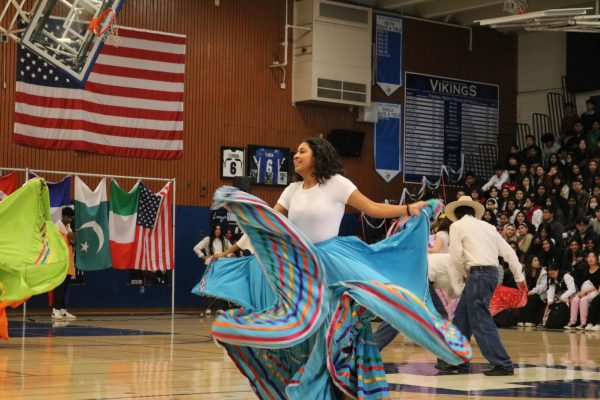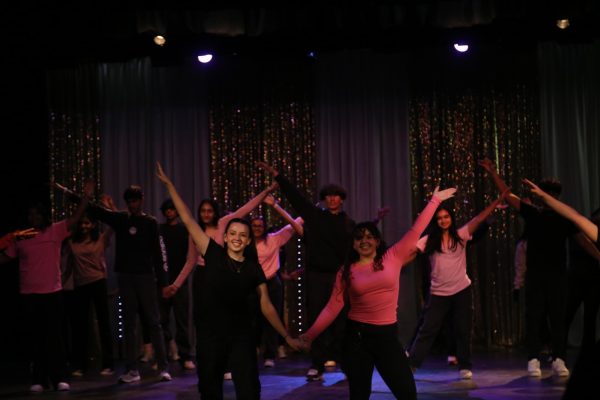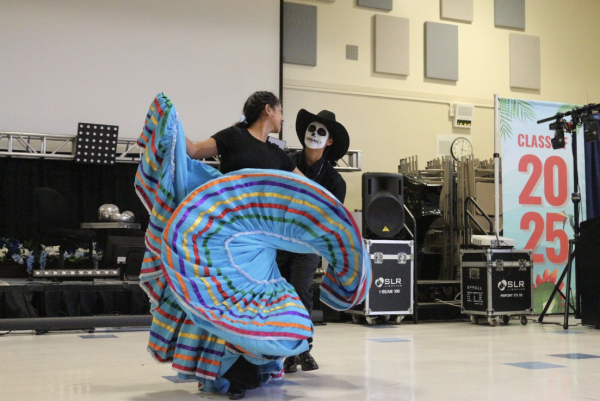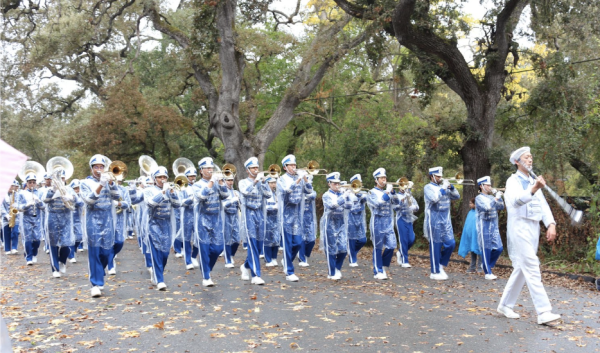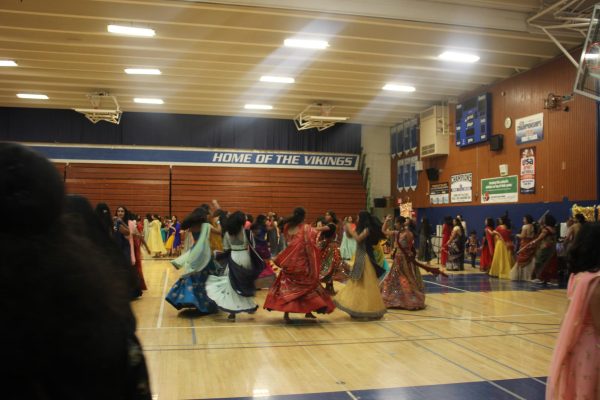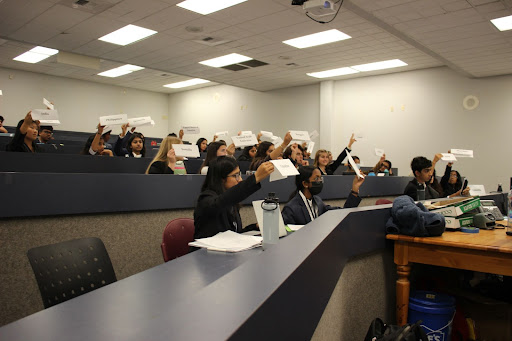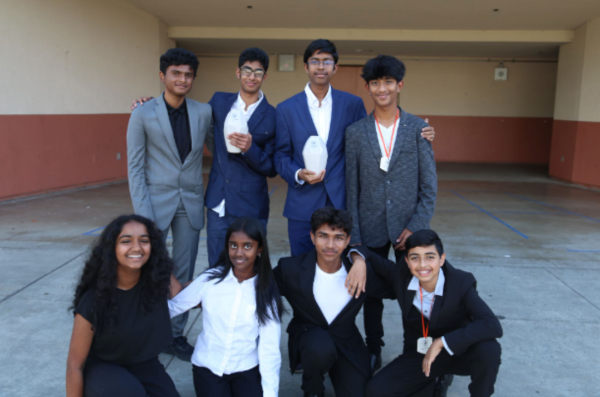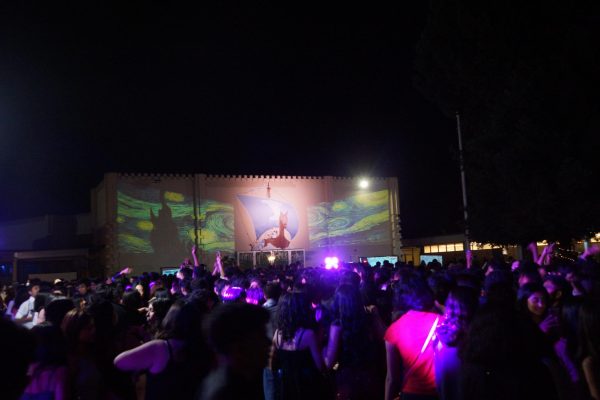Irvington Debate Doesn’t Let Down
Harshil Shah (12) and Ashley Mui (12) initially signed up for the tournament to see how much they had improved over the summer. The team also competed to gain points, which are used in determining eligibility for teams who wish to compete in the end of the year debate championship tournament.
From Sept. 25 to 27, Irvington Debate competed in the Stephen Stewart Invitational, a highly competitive debate tournament hosted by Milpitas High School. After a lot of preparation off and on season, Harshil Shah (12) and Ashley Mui (12) championed in the parliamentary varsity division.
Within each round of debate, three judges observed, critiqued, and voted for the better team, which received a “ballot.” Shah and Mui went up against some of Irvington Debate’s top competitors such as Campbell Lindo and Bishop O’Dowd but still won 14 ballots out of 20.
Shah and Mui debated on more topics than usual during this tournament, allowing them to gain insights on subject matter that affected them as California citizens such as the electoral college, California wildfires, California policies, and felon disenfranchisement. Both Shah and Mui credit their success to their teamwork and synergy.
“A strength is how we’re able to communicate our points to a judge,” said Mui. “And so is our eloquence in itself allows you to concisely communicate your points without having to speak very quickly, which is what other debaters normally struggle with.”
Their competitors’ strength and the judges’ varying feedback gave Shah and Mui the impression that each of their rounds were particularly close, so they were surprised to hear their score of 4-1. After learning that they passed pre-elimination rounds with a high score, Shah and Mui felt motivated to keep pushing forward and performing well, which led to their eventual win.
“Even though everyone wants to win, of course, I just take a different approach,” commented Mui. “We try to have fun during prep time and during the debate to kind of enjoy the experience. In that way, our team dynamic is a lot more dynamic in that sense.”
The Stephen Stewart Invitational was the second virtual tournament that Irvington Debate competed in. Due to Covid-19, all debate tournaments are being conducted online instead. While the overall format of the tournament has remained constant, transitioning to fully virtual tournaments has brought its own benefits and drawbacks.
“I think the biggest pro of online tournaments is we don’t have to wake up super, super early because we can roll out of our bed when we can check-in, and we’re good to go, instead of having to drive an hour out in order to go compete,” explained Caroline Xin (12), the president of Irvington Debate. “However, with online tournaments, online debate is incredibly frustrating due to a lot of technical issues. And just communicating with your partner is a lot harder, especially in an event like parliamentary debate, where we literally have 20 minutes to prepare a topic and our side.”
Although online debate can be a hassle at times, Caroline believes that Irvington Debate has made the transition quite smoothly.
“We’re about teaching each other. We learn from each other. We’re able to grow and develop with each other,” said Xin. “And it’s a huge part of what we do is like, we kind of consider ourselves to be a family.”
Though being fully virtual has put an end to physical practices and lessons, Irvington Debate still prepares members, arguably even better than before,hosting more practices for their members to develop a greater understanding on a wider variety of topics.



